Looking back at Transport Innovation Summit 2023: Our key takeaways
- Like
- Digg
- Del
- Tumblr
- VKontakte
- Buffer
- Love This
- Odnoklassniki
- Meneame
- Blogger
- Amazon
- Yahoo Mail
- Gmail
- AOL
- Newsvine
- HackerNews
- Evernote
- MySpace
- Mail.ru
- Viadeo
- Line
- Comments
- Yummly
- SMS
- Viber
- Telegram
- Subscribe
- Skype
- Facebook Messenger
- Kakao
- LiveJournal
- Yammer
- Edgar
- Fintel
- Mix
- Instapaper
- Copy Link
Posted: 24 October 2023 | Halimah Haque - Intelligent Transport | No comments yet
A month after Transport Innovation Summit 2023, Intelligent Transport’s Halimah Haque shares her key takeaways from the event and reflects on its collaborative success, emphasising its value in fostering knowledge sharing and industry connections to shape the future of public transport.
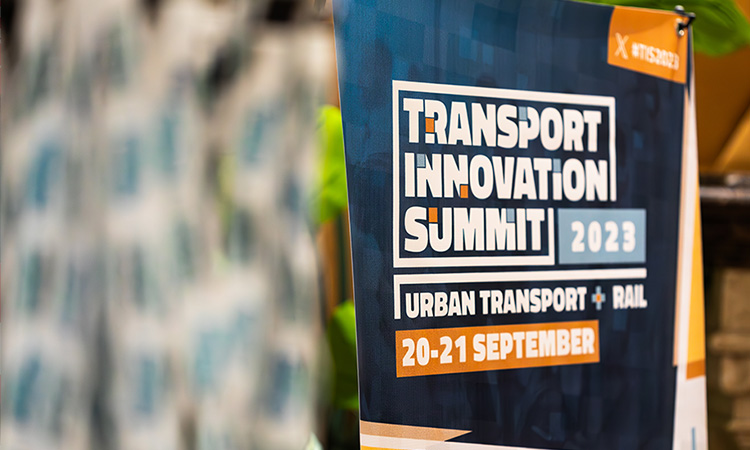



“Our core principle for transportation is making sure people get exactly what they need,” said Gia Biagi, Former Commissioner of the Chicago Department of Transportation, setting the tone for the 2023 edition of Intelligent Transport’s Transport Innovation Summit in London last month.
For two bustling days, we welcomed industry leaders from across the transport sector once again, bringing them to the heart of the UK capital. With speakers and attendees joining us from around the world – including the UK, Spain, the U.S., France, Nigeria, the United Arab Emirates, the Netherlands, and plenty more – Transport Innovation Summit served as a platform for an international exchange of ideas, solutions and strategies.
Looking back from a month on, so much unfolded over the course of the two days, but today I’ll be sharing just a few of our key takeaways.
Prioritising the fundamentals
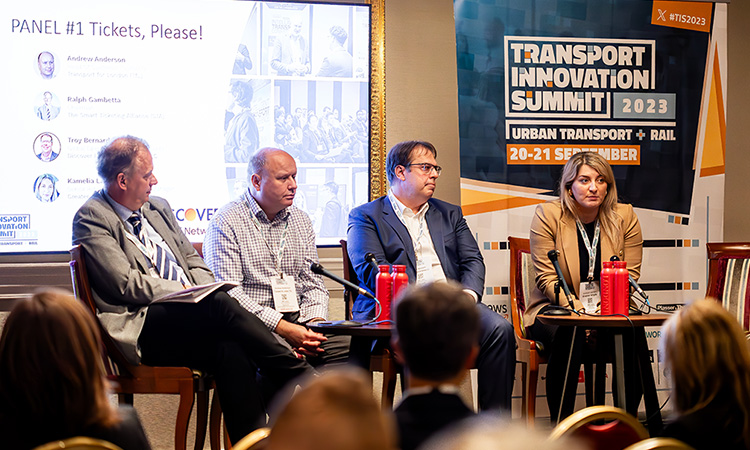

Panel #1 – Tickets, please!
Over the years, the public transport sector has undergone a significant evolution, developing and implementing key technologies that we would have thought were unattainable just a decade ago. From artificial intelligence (AI) to autonomous vehicles and 5G connectivity, we’ve come a long way. However, it’s sometimes the simplest technologies that make the biggest impact for public transport users, such as contactless ticketing.
Whether it’s the Oyster card in London, PRESTO in Toronto, Cowry in Nigeria or EZ-Link in Singapore, these smart payment options have revolutionised the commuter experience for their users”
Whether it’s the Oyster card in London, PRESTO in Toronto, Cowry in Nigeria or EZ-Link in Singapore, these smart payment options have revolutionised the commuter experience for their users, making journeys smoother, more seamless and more accessible. This exact sentiment was conveyed in our first panel session on Day One, as Greater Anglia’s Kamelia Lazarova, Transport for London’s (TfL) Andrew Anderson, Discover Global Network’s Troy Bernard and the Smart Ticketing Alliance’s Ralph Gambetta came together to discuss all things ticketing.
In addition to the benefits that contactless cards offer to customers, our speakers also highlighted the advantages that they provide to transport operators and authorities. As Kamelia said, “Digital ticketing solutions allow us to manage information and the rich data, which enables us to look at trends, look at that analysis, making sure that we use this data to inform our decisions.”
And, while it may be tempting to continue innovating and developing new solutions, Andrew underlines why it is important not to over-complicate them: “There’s a balance to strike between digital innovations, making sure that they’re easy to use, but they’re robust and secure as well.”
Turning to Mobility-as-a-Service
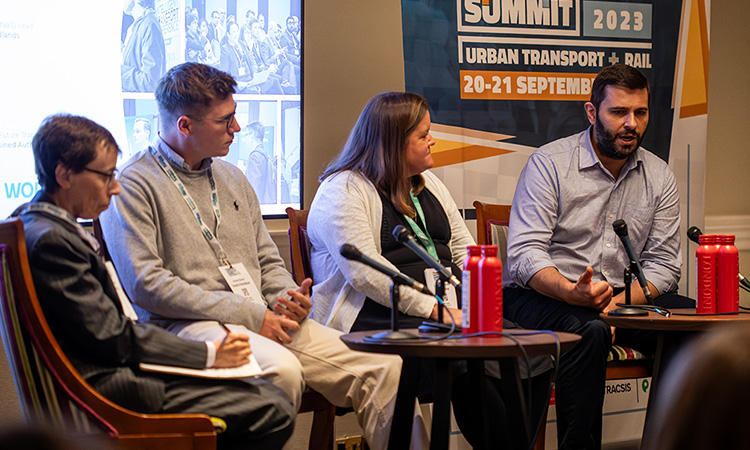

FIRESIDE CHAT #1 – Is Mobility-as-a-Service the key to public transport’s future success?
Our approach to public transport needs to change. The opportunity with Mobility-as-a-Service is that we can enable that kind of change through developing the way that public transport is delivered”
Now, how can we speak about innovation, without mentioning the sector’s biggest buzzword, Mobility-as-a-Service (MaaS)? In our first MaaS session, Transport for West Midlands’ James Bullen, West of England Combined Authority’s Oliver Coltman, Worldline’s Lucy Whitehead and Intelligent Transport Advisory Board Member Carol Schweiger joined forces to answer the all-important question: is Mobility-as-a-Service the key to public transport’s future success?
Can one session provide a complete answer to this question? Probably not. But our speakers highlighted the sheer potential that MaaS holds in making public transport and mobility, in general, as effortless as possible. Although it may not be the sole solution, it certainly plays a significant role in reshaping the way that both commuters and operators perceive public transport. As Oliver emphasised, “Our approach to public transport needs to change. The opportunity with Mobility-as-a-Service is that we can enable that kind of change through developing the way that public transport is delivered within an urban environment, the digital access to these services and, more importantly, focusing on the customer and their needs.”
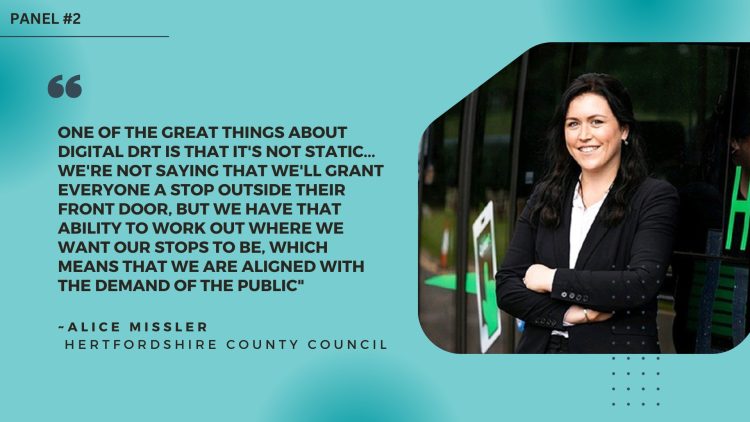

PANEL #2 – Creating a more accessible, equitable and sustainable network with on-demand and demand-responsive transport
Unlocking the power of data: It’s strengths and challenges
Data allows us to predict trends, but we often struggle to adapt our services in real-time. Bridging this gap is essential”
As you may have noticed, the power of data has been repeatedly mentioned throughout many of our sessions, but a dedicated session was crucial to delve deeper into this topic. Joining Transports Metropolitans de Barcelona’s Margarida Romero, the Department for Transport’s Meera Nayyar, BT’s Nathan Watt and Bus Users UK’s Jennie Martin, Transport for London’s Philip Gerhardt underlined the immense responsibility that transport agencies and authorities, such as TfL, have in utilising data wisely to deliver reliable services and to provide better outcomes for their customers.
While Margarida agreed, underscoring the pivotal role that data plays in public transport, she went on to highlight the challenges that currently exist in this sphere in Barcelona: “Data allows us to predict trends, but we often struggle to adapt our services in real-time. Bridging this gap is essential. While we have a wealth of information, our adaptability needs improvement. We must foster a change in mindset, convincing business units to trust and utilise the data effectively.”
And, of course, no discussion on data can be complete without considering ethics. Margarida’s words served as a reminder that harnessing data for public transport’s benefit should align with ethical standards, ensuring responsible and accountable practices in the industry.
MaaS Global's Robert From set the stage for Day Two with his engaging Keynote Presentation covering all aspects of MaaS.
Achieving zero-emission
What we need to do is make sure we pick the right technical solution for each different operation and not force the wrong technology into the wrong location”
In recent years, addressing climate change has been a top priority for cities, public transport operators and authorities around the world. Whether it’s modal shift, promoting more shared and active mobility options or vehicle decarbonisation, these organisations are working eagerly to create a more environmentally friendly transportation system.
Kicking off Day 2 of Transport Innovation Summit 2023, the City of Madrid’s Lola Ortiz Sanchez was joined by Arriva Group’s Matt Greener, First Bus’s Isabel McAllister and Bus Users UK’s Claire Walters as she underlined what exactly drove the Spanish capital’s ambition to decarbonise public transport: “At the start, it was a political decision, because we were focused on improving our air quality, as we didn’t comply with the European directive… But, most importantly, it was because we wanted to provide clean air for all our citizens, which is why we introduced the Madrid 360 strategy in September 2019.”
Our speakers also highlighted the complex challenges that accompany using hydrogen fuel in comparison to electric, with Matt emphasising why operators and authorities need to take immediate action instead of waiting for the realisation of 100% zero-emission vehicles: “Hydrogen has its place, but what we need to do is make sure we pick the right technical solution for each different operation and not force the wrong technology into the wrong location. If we have to, and want to, use biofuels to do those long-distance routes, it’s still better for the planet to do that now than try to force or wait for a zero-emission option to become available.”
Looking to the future
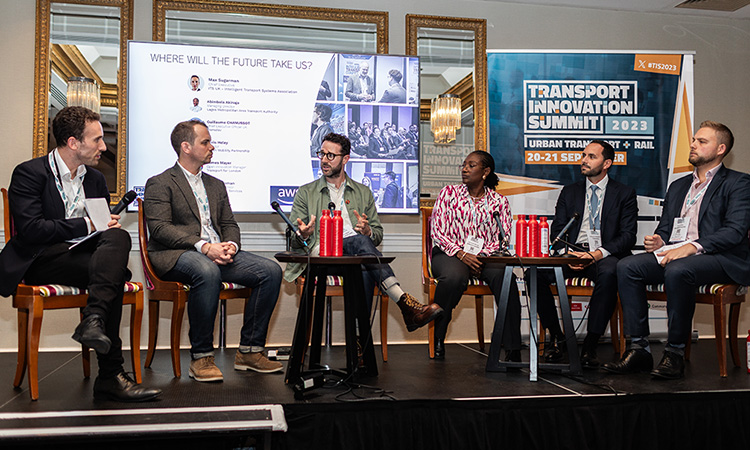

PANEL #8 – Where will the future take us?
The ability to understand your own people and apply the innovative technologies that work [in the realm of public transportation] in other cities is what really excites us at LAMATA”
In our final session on Day Two, and the entire event, TfL’s James Mayer, Lagos Metropolitan Transportation Authority’s Abimbola Akinajo, Transdev’s Guillaume Chanussot, the Urban Mobility Partnership’s Chris Heley, Amazon Web Services’ John Chapman and ITS UK’s Max Sugarman shared their thoughts on how they see the future of public transport developing, as well as some of the sector’s successes and challenges.
During this session, our speakers shed light on the numerous innovations that have the potential to revolutionise public transport not only in the UK, but also across Europe. Abimbola then went on to discuss the transformative impact of the Blue Line, Lagos’ first rail system, which has seamlessly connected mainland Lagos with Lagos Island, slashing a once two-hour journey to just 15 minutes.
As the city is still in the early stages of its public transport development, Abimbola expressed her enthusiasm for embracing and adapting best practices from successful initiatives in other cities, stating: “The ability to understand your own people and apply the innovative technologies that work [in the realm of public transportation] in other cities is what really excites us at LAMATA.”
As highlighted by Gia when she first opened the event, the core principle of providing what people need remains at the forefront of the sector, ensuring that public transportation evolves to meet the changing demands of today’s world.
We had many more sessions take place discussing several other key topics across the two days, including Demand-Responsive Transport (DRT) and shared mobility, as well as connected and autonomous vehicles, but these were just some of the sessions that stood out to me.


The success of this event was a collective effort, with our Intelligent Transport team, speakers, sponsors and attendees all contributing.
Above all, it was really inspiring to witness everyone bonding over their shared passion for the industry”
Whilst all of these sessions were incredibly insightful, one of the most rewarding aspects of Transport Innovation Summit was the opportunity to network with industry members face-to-face – finally putting a face to a name of the people that we had been emailing for months and, in some cases, even years. We had the chance to have meaningful discussions, as well as make new contacts. Above all, it was really inspiring to witness everyone bonding over their shared passion for the industry.
The success of this event was a collective effort, with our speakers, sponsors and attendees contributing significantly. However, it was the immense work that took place behind-the-scenes that made this event as memorable as it was. Our Intelligent Transport team played an invaluable role in organising every detail, making Transport Innovation Summit 2023 a pivotal knowledge sharing hub for the industry.
If you joined us in London last month, we’d love to hear about your key takeaways from the event and what insights or experiences resonated with you the most.
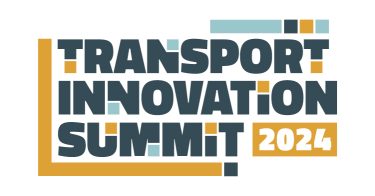

Transport Innovation Summit 2024
Get ready to embark on a journey into the future of intelligent transport. Next year’s summit promises to be even more groundbreaking, as we invite people from around the world to explore cutting-edge technologies, sustainable mobility solutions and the next generation of transportation innovations.
Register your interest today and mark your diaries to join us and visionary leaders, industry experts and innovators.
WHEN: 23-24 October 2024
WHERE: Millennium Gloucester Hotel, Kensington, London, UK
Related topics
Accessibility, Active travel, Air Quality, Alternative Power, Artificial Intelligence, Connected & Autonomous Vehicles, Micro-mobility, Mobility Services, Modal shift, Passenger Accessibility, Passenger Experience, Public Transport, Sustainable Urban Transport, Ticketing & Payments, Transport Innovation Summit 2023
Related modes
Bikes & Scooters, Bus & Coach, Rail
Related countries
Canada, France, Nigeria, Singapore, Spain, The Netherlands, United Arab Emirates, United Kingdom, United States
Related organisations
Amazon Web Services, Arriva Group, Bus Users UK, City of Madrid, Department for Transport (DfT), Discover Global Network, First Bus, Greater Anglia, Lagos Metropolitan Transportation Authority, Smart Ticketing Alliance, Transdev, Transport for London (TfL), Transport for West Midlands (TfWM), Transports Metropolitans de Barcelona (TMB), Urban Mobility Partnership, West of England Combined Authority, Worldline
Related people
Abimbola Akinajo, Andrew Anderson, Carol Schweiger, Chris Heley, Claire Walters, Guillaume Chanussot, Isabel McAllister, James Mayer, Jennie Martin, John Chapman, Kamelia Lazarova, Lola Ortiz Sanchez, Lucy Whitehead, Margarida López Romero, Matt Greener, Max Sugarman, Meera Nayyar, Nathan Watt, Oliver Coltman, Philip Gerhardt, Ralph Gambetta, Troy Bernard







